3Becoming a Successor in the Lineage through Realization and Dao-Attainment
- Receiving the Orthodox Religious Lineage
On the 10th day of the 2nd lunar month of the Jeongsa Year (1917), toward the conclusion of the 9-year Holy Work he had undertaken after receiving the Mandate to Serve Heaven, he realized the Truth of Sangje’s Great Itineration of the Three Realms and attained the Dao. Subsequently, Doju received the Orthodox Religious Lineage from Sangje through divine revelation. While diligently performing a Holy Work, he was bestowed with an incantation known as the Prayer Incantation (Gido-ju), which serves to save the world and relieve people.
In the 4th lunar month of the same year, he received a divine revelation: “Go to Taein and look for Me.” After leaving Fengtian, Manchuria, he returned to Korea by ship and came to stay in Anmyeon Island located in Seosan County, South Chungcheong Province, where he dedicated himself to performing Holy Works for a period of time.
In the 9th lunar month of Muoh Year (1918), he left Anmyeon Island and reached Donggok Clinic on his way through Wonpyeong Village, Gimje. He traced the footsteps of Sangje’s nine-year Reordering Works of Heaven and Earth. On the first full moon day of the first lunar month of the Gimi Year (1919), while visiting Madong Village, Jeongeup County, he received a sealed chest of documents left by Sangje from Sangje’s younger sister, Lady of Seondol. - Realization, Dao-Attainment, and Emergence as a Successor
“At the end of a nine-year-long Holy Work in the Jeongsa Year (1917), Doju came to realize the Truth of Sangje’s Great Itineration (Daesoon) of the Three Realms and attain the Dao.”
After the completion of the nine-year Holy Work with the determination to save the world and relieve people, Doju came to realize the Truth of Sangje’s Great Itineration and attained the Dao. This revelation occurred on the 10th day of the 2nd lunar month of the Jeongsa Year (1917) in Fengtian, Manchuria. Through Sangje’s revelation, Doju was able to discern the purpose of Sangje’s Great Itineration which is to rectify and vastly save the world and its inhabitants. As a result, Doju became the successor in the Heavenly bestowed lineage of Orthodox Religious Authority.
“Attaining the Dao at the age of 23 substantiates Doju’s achievement of attunement to the primordial function of the Taeeul-ju Mantra.”
hum-chi-hum-chi tae-eul-cheon-sang-won-gun hum-ri-chi-ya-do-rae hum-ri-ham-ri-sa-ba-ah
- Receiving the Prayer Incantation (Gido-ju)
One day in the 2nd lunar month of the Jeongsa Year (1917) while staying in Fengtian, Manchuria, Doju was diligently engaged in his Holy Work Chamber. At that time, a man of divine power appeared, showing him a sheet of paper on which something was written, and said, “If you recite this incantation, you shall save the world from chaos and relieve people of their despair.”
si-cheon-ju-jo-hwa-jeong yeong-se-bul-mang-man-sa-ji ji-gi-geum-ji-won-wi-dae-gang
After that, Doju recited the incantation holding a bowl of fresh water before his face every day and night. Then, one day during the 4th lunar month of that year, he received a revelation from Sangje: “Go to Taein and look for Me,” and returned to Joseon on the 4th lunar month of the same year (1917).
- Receiving the Sealed Chest of Documents Left by Sangje
In the autumn of the Muoh Year (1918), Doju followed Sangje’s footsteps according to a divine revelation and stayed at Daewon-sa Temple where he performed Holy Works. On the 15th day of the 1st lunar month (the first full moon day) of the Gimi Year (1919), Doju was guided around by Lee Chi-Bok, a former disciple of Sangje, and taken to Madong Village of Jeongeup County (modern day Jodong Hamlet, Hwahae Village, Buk Township, Jeongeup City, North Jeolla Province) where he met Sangje’s mother, His younger sister who was known as ‘Lady of Seondol,’ and His daughter, Sunim. Lady of Seondol, who especially welcomed Doju, said, “While He was on Earth, He used to say to me that a man born in the Eulmi Year (1895) shall pay a visit on the day of the first full moon of the lunar year.” After saying that, she presented a sealed chest of documents to Doju that Sangje had entrusted to her to give to that prophesied visitor. Doju stayed there for half a month before heading to Hwangsae Hamlet.

1Doju’s Descent and Birth
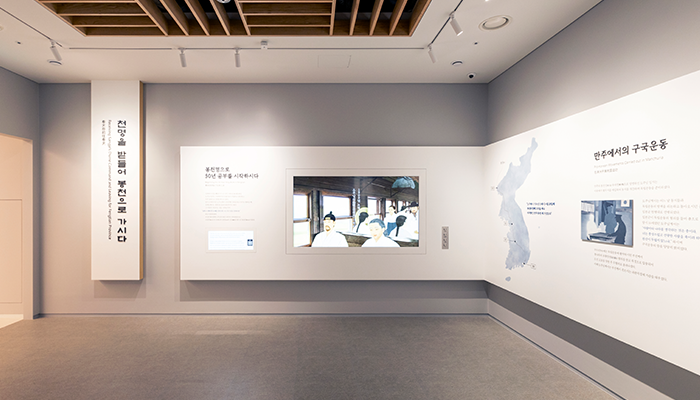
2Receiving Sangje’s Divine Command and Leaving for Fengtian Province
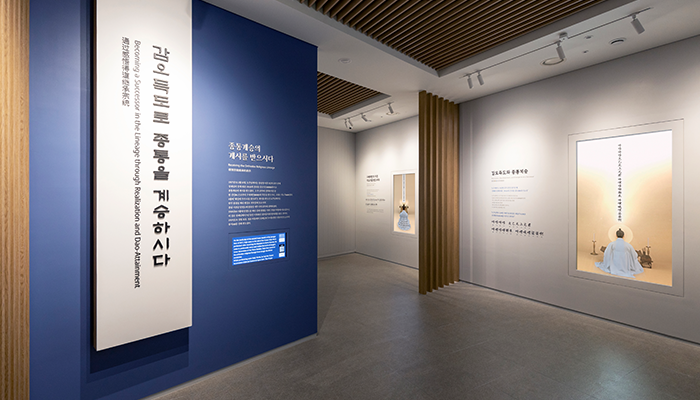
3Becoming a Successor in the Lineage through Realization and Dao-Attainment
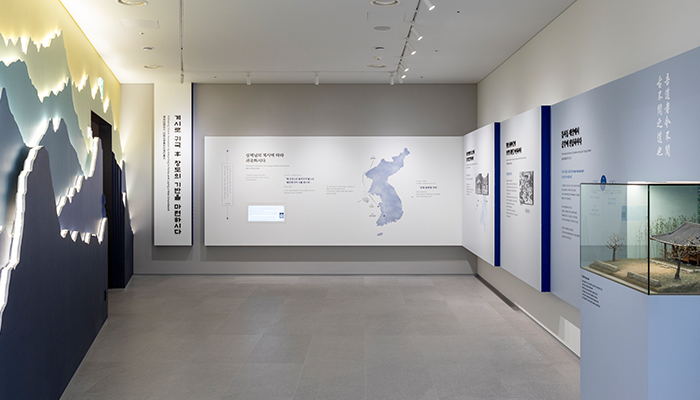
4Following Divine Revelation by Returning to Korea and Laying a New Groundwork
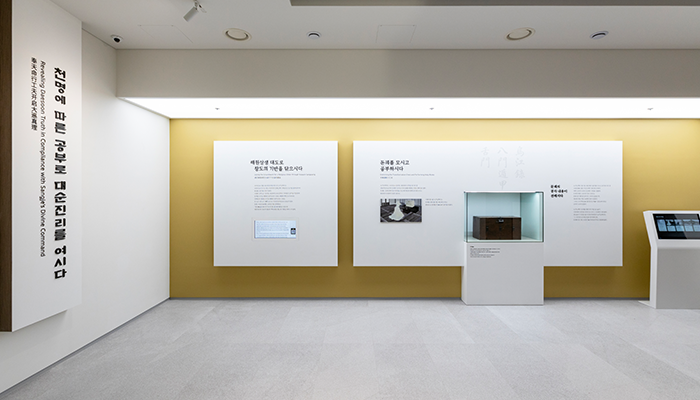
5Revealing Daesoon Truth in Compliance with Sangje’s Divine Command
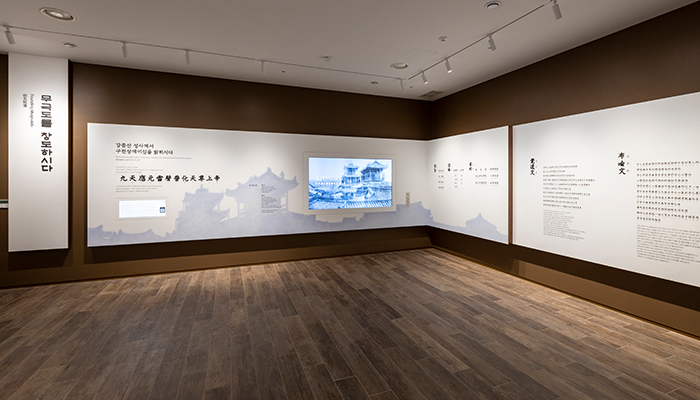
6Founding Mugeukdo
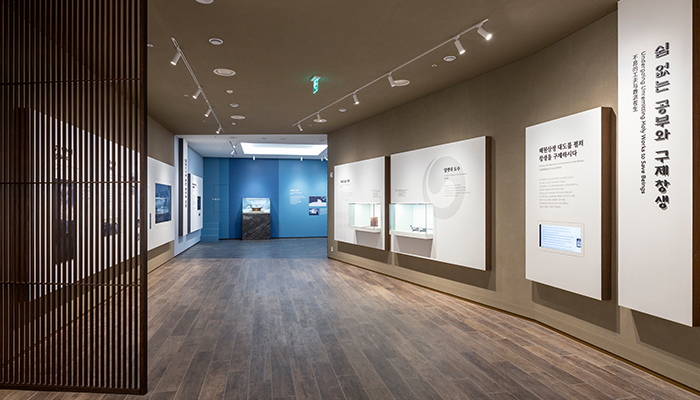
7Undergoing Unremitting Holy Works to Save Beings
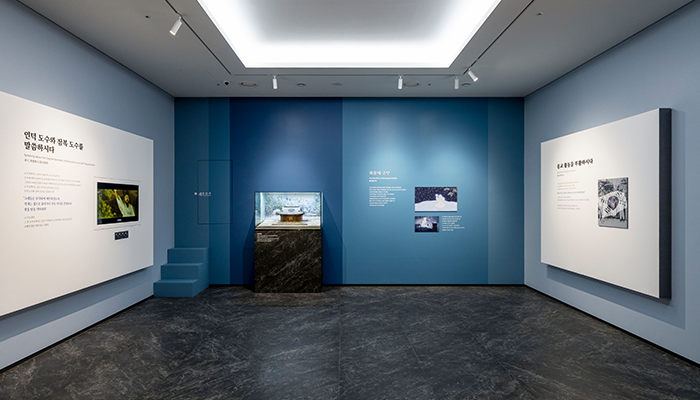
8The Holy Work at Hoeryong-jae Pavilion
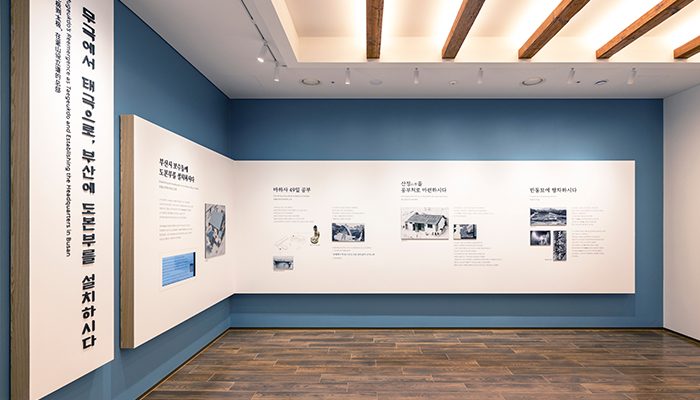
9Mugeukdo’s Reemergence as Taegeukdo and Establishing the Headquarters in Busan
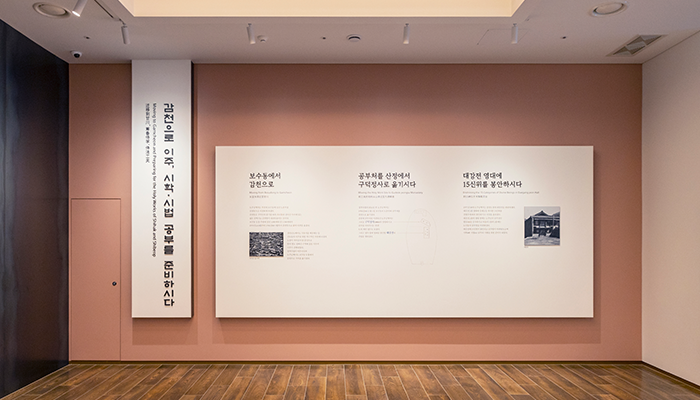
10Moving to Gamcheon and Preparing for the Holy Works of Shihak and Shibeop
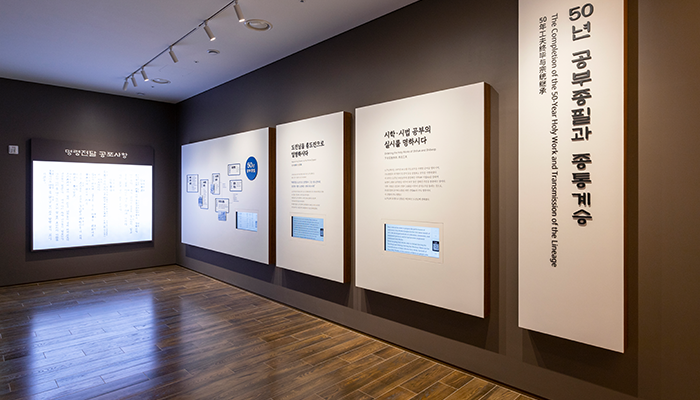
11The Completion of the 50-Year Holy Work and Transmission of the Lineage



